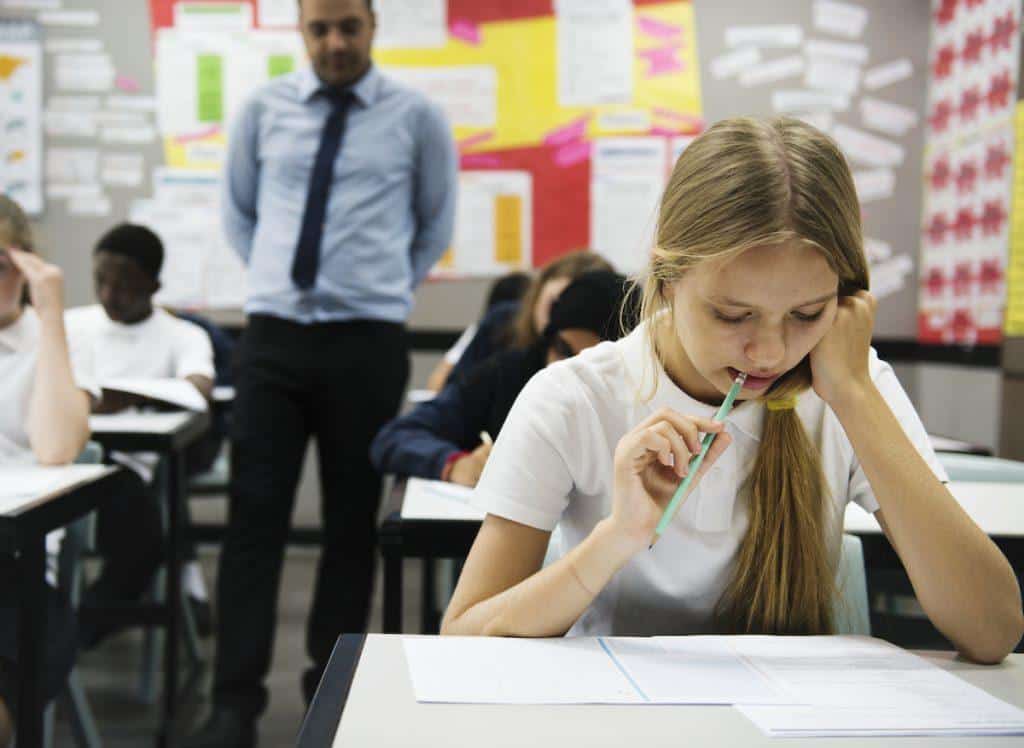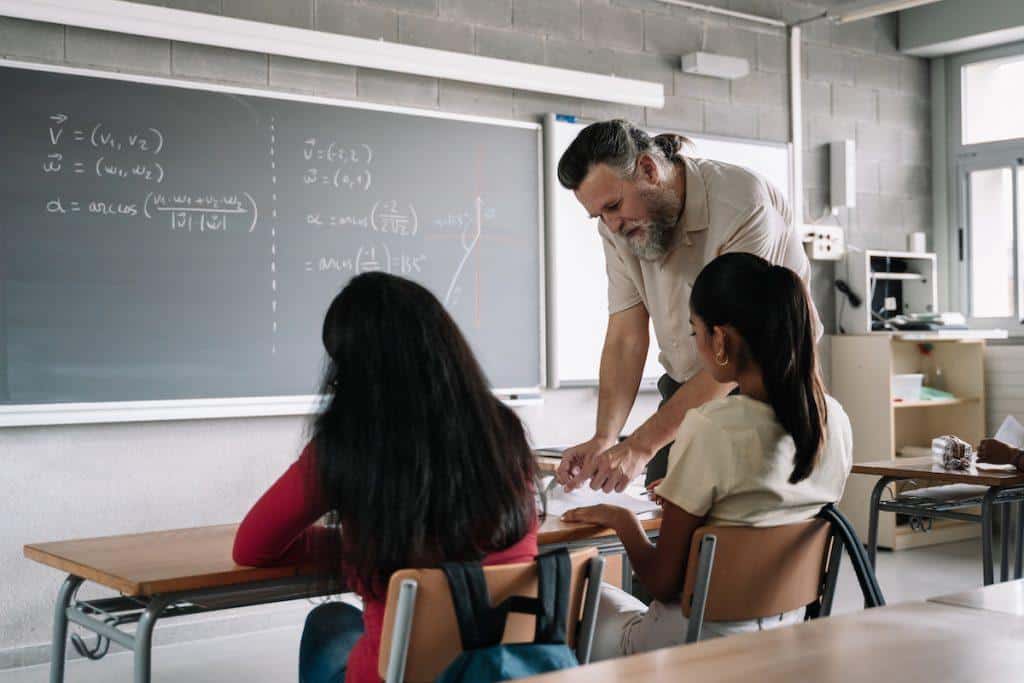Learning is not an easy task. Students who are naturally independent thinkers can do it on their own. But what about those students who don’t have the skills or the personality for it?
Key Take Aways
Cultivating Self-Reliant Learners
- Enhance students’ self-sufficiency in learning for personal and academic growth.
- Implement the Gradual Release of Responsibility approach, transitioning from teacher-guided to learner-driven education.
- Encourage a growth-oriented mindset, focusing on dedication, persistence, and learning from setbacks.
- Impart the significance of self-evaluation and goal establishment for monitoring progress and continuous improvement.
- Offer options and independence to stimulate engagement, accountability, and a sense of control over the learning process.
- Teach techniques for self-appraisal and self-control to facilitate effective goal development and time management.
- Create a nurturing educational atmosphere that fosters teamwork, trust, and shared respect.
Table of Contents
- Key Take Aways
- How Do Students Become Independent Learners?
- Why Is Independent Learning So Important?
- The Naturally Independent Learner
- Top Benefits Of Independent Learning
- 7 Tips For Encouraging Students to Own Learning
- Teaching Strategies That Promote Independent Learning Skills
- Using Math To Organize Ideas
- 13 Ways To Help Students Become Independent Learners
- Some Tools For Independent Study
- Teaching Independent Learners FAQs
- How Can Independent Learning Change One’s Outlook?
How Do Students Become Independent Learners?
One of the biggest challenges for teachers today is to identify areas that help kids become independent learners in an environment that is naturally collaborative or community-driven.
Learning to think independently is an important skill because most serious work including writing, math, testing, and creative activities involve the learner by themselves, alone.
Why Is Independent Learning So Important?
Creating independent learners is important for a number of reasons. First, students do most of their work alone. They don’t usually have peers sitting close by in the real world on the job or when doing research or other kinds of real work. Second, it is important that we encourage students to have the confidence to believe that they can figure things out for themselves. While they should try to show respect for others’ opinions, standing strong on what they know is correct should be a priority. You don’t get anywhere in the world by being wishy-washy or going with the crowd.
Developing one’s own ideas of themselves and their role in the world is an important part of personal growth and development. Finally, it is the independent thinker that changes the world. Those who are often thought of as odd or different from the crowd are often the same ones who really change things and invent something unique and wonderful.
The Naturally Independent Learner
The natural independent learner is that really smart kid who usually sits alone reading or working by themselves. Some of them do have friends but when they work, they work alone. Some of the greatest minds of all history worked alone. Einstein, Thomas Edison, and Steve Jobs were all independent learners. Albert Einstein once said he refused to read anyone else’s papers on the topics he studied because he was afraid it would bias his opinion with his own raw research.
Independent learners not only are able to learn alone but they also self-monitor their learning, keep up with their own progress, and focus on goals that they have set for themselves.
For those who are not loners or natural independent thinkers, what are some ways that teachers can help guide students to become more independent learners?

Top Benefits Of Independent Learning
When someone becomes a more independent learner, they will enjoy many benefits from this.
- Improved academic progress
- Increased drive and confidence
- Increased creative potential
- Social inclusion and countering of alienation
- Complete teacher-set differentiated tasks
- Reduce teacher chatter
- Helps people share ideas and develop new ideas
People who are in more control of their own learning tend to do better in school. They take an interest in their own success and are more motivated to achieve their goals. Their confidence improves as well as their capabilities to create something different or unique. They are less alienated, for example, which can decrease school violence and feelings of suicide among depressed students.
When students feel comfortable with a collaborative and supportive school peer group, they feel they have help if them need it for problem solving skills like bullying, anger, and hopelessness. This improves the mental health of many kids who would otherwise feel helpless and isolated.
There’s no doubt that this system that requires the teachers to still be involved but that focuses on the needs of the learner may cut down on teaching chatter that is not helpful to the educational process.
7 Tips For Encouraging Students to Own Learning
Tip 1: Provide Students With Self-Monitoring Ideas.
Successful independent learners known how to self-monitor and then adjust their learning to fit the standards that are set forth. If teachers provide a number of different self-monitoring tips, students will have unlimited access to more tools at their fingertips to help with their learning and progress.
Tip 2: Scaffold The Learning Process.
Socrates was the first educator to develop and use the questioning method of instruction. And it is still very effective today. By asking the right questions at the right times, you can inspire students to think deeper about a concept and to come up with their own conclusions.
Tip 3: Focus On Own Learning Goals.
The best type of communication should focus on learning goals. If a student wants to achieve a higher score on an entrance exam, for example, they should gather all of the information possible about what to expect on that assessment and then align their classes and course decisions to help them meet that expectation.
Tip 4: Provide Constructive Oral And Written Feedback.
Positive but detailed oral and written feedback from the teacher and peers is important for independent learners. They rely on data and information about their progress to make decisions regarding their own learning.
Tip 5: Use collaborative learning to increase independent thinking.
Believe it or not, much research shows that having students collaborate with others can actually increase their ability to think for themselves. As long as they are reminded not to let other opinions influence their own ideas too much, hearing the views or ideas of others can contribute to the idea of a student developing independent ideas, free of too much teacher influence.
Tip 6: Have Students Participate As Much As Possible In Lesson Planning.
When possible, ask students what they would like to learn from your class or lessons this school year, rather than just doling out the same material you have done for years. Changing how you do things can be difficult at first, but it also offers you a chance to evaluate what you do and see if it is still relevant to today’s learners. By including students in the lesson planning activity makes them feel they are part of a community where their voice matters.
Tip 7: Encourage Reflection And Metacognition.
“The unexamined life is not worth living.” (Socrates). By allowing time for reflection and thinking about their own thinking processes, you can inspire independence in learners and allow them to self-monitor their learning process and progress.

Teaching Strategies That Promote Independent Learning Skills
There are many teaching strategies that promote independent learners. Some of the most successful ones are listed below:
Allow Choice
The more you can allow students choice in their learning methods, the more they will gain the confidence to choose their best mode of learning. Consider what is important to certain students and try to include choices that student will respond to in a positive way.
Encourage Peer Support
Peer support is important to independent learners. Though they may prefer to work on solving problems all by themselves, hearing positive feedback from their peers is important to academic success in the educational process. Find ways to put positive-minded kids with others who need more encouragement to encourage confidence and critical thinking and learning.
Encourage Good Note Taking
Developing skill with good note-taking is paramount to helping kids become more independent. Note-taking effectively is a skill that can be learned. Start by showing students how to focus on what is important when taking notes, and not try to take down everything a speaker says. They should also learn to use active listening to get the main part of the message and to know how it should be applied to their learning.
Develop Time Management Skills
Helping students learn good time management skills is one of the most important things you can do to get them learning more independently. Consider how you can illustrate time management by modeling it yourself (always being on time), spending your time wisely, etc., and ask students to come up with other ideas as to how to make the best use of their time. There are also time management tools that are high-tech, such as a digital Pomodoro timer and others that help keep you on task.
Teach Students Creative Thinking Skills
As the teacher, you can instill creative skills and critical thinking by using techniques such as Talk Moves and visual learning strategies to get students to respond more often and to think out loud. Brainstorming in groups and alone can also aid in helping create a sense of independent discipline and thinking.
Using Math To Organize Ideas
One unique approach to helping students become more independent learners is to focus direct instruction on the math process using counting, grouping, or inference skills to make sense of something. This video on independent thinking skills by a 1st-grade teacher shows this in action.
13 Ways To Help Students Become Independent Learners
Here are 15 ways that teachers and school themselves can inspire independent learning among students.
- Teach how to focus on the details
- Focus on literacy and improving reading comprehension skills
- Introduce creative tools (both real-world and digital)
- Teach how to be more resourceful and to network abilities with others
- Promote a positive growth mindset
- Host a “Genius Hour” that focuses on bragging on outstanding work by particular
- Demand that they learn to be persistent
- Be determined to win
- Revamp class policies to be positive and rigorous
- Help students create their own educational goals
- Have a designated area for independent learning
- Schedule time for writing lessons to improve writing skills
- Follow successful models and learning objectives

Some Tools For Independent Study
- Wordlists or word walls
- Extension activities
- Extended vocabulary
- Workbooks
- Online activities
- Independent Research
- Flipped classroom tasks
- Studying independent media and comparing them for research
Teaching Independent Learners FAQs
Independent learning is the process of learning and also monitoring the learning of oneself so that they can focus on reaching the academic goals they have been taught to set for themselves.
Because it is an activity that inspires great ideas and independent thought. It keeps people from being overly influenced by wrong opinions or dogma. It gives confidence to the shy learner to try something difficult.
Because it increases their self-confidence and self motivation.
How Can Independent Learning Change One’s Outlook?
Independent learning helps students to accept a temporary failure because they see how it will lead to success by learning from the failure. By being a more independent learner, it empowers students to feel that they can do more on their own. This new self-confidence can lead to real successes in the future. Self-reflection helps them focus on their strengths and build their skills around that, rather than worrying about their failures.
